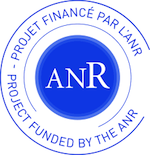In this presentation we will introduce a novel source coding problem allowing massive random access to large databases. Indeed, we consider a database that is so large that, to be stored on a single server, the data have to be compressed efficiently, meaning that the redundancy/correlation between the data have to be exploited. The dataset is then stored on a server and made available to users that may want to access only a subset of the data. Such a request for a subset of the data is indeedrandom, since the choice of the subset is user-dependent. Finally, massive requests are made, meaning that, upon request, the server can only perform low complexity operations (such as bit extraction but no decompression/compression). After describing the problem, information theoretical bounds of the source coding problem will be derived. Then two applications will be presented: Free-viewpoint Television (FTV) and massive requests to a database collecting data from a large-scale sensor network (such as Smart Cities).


